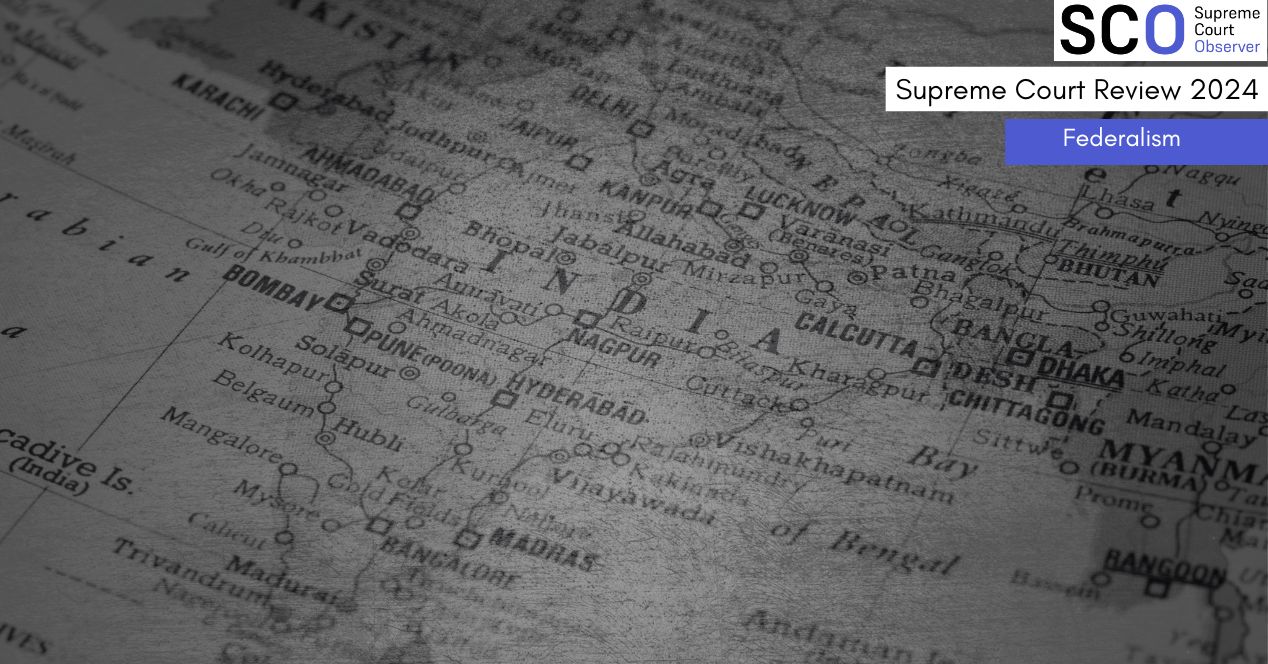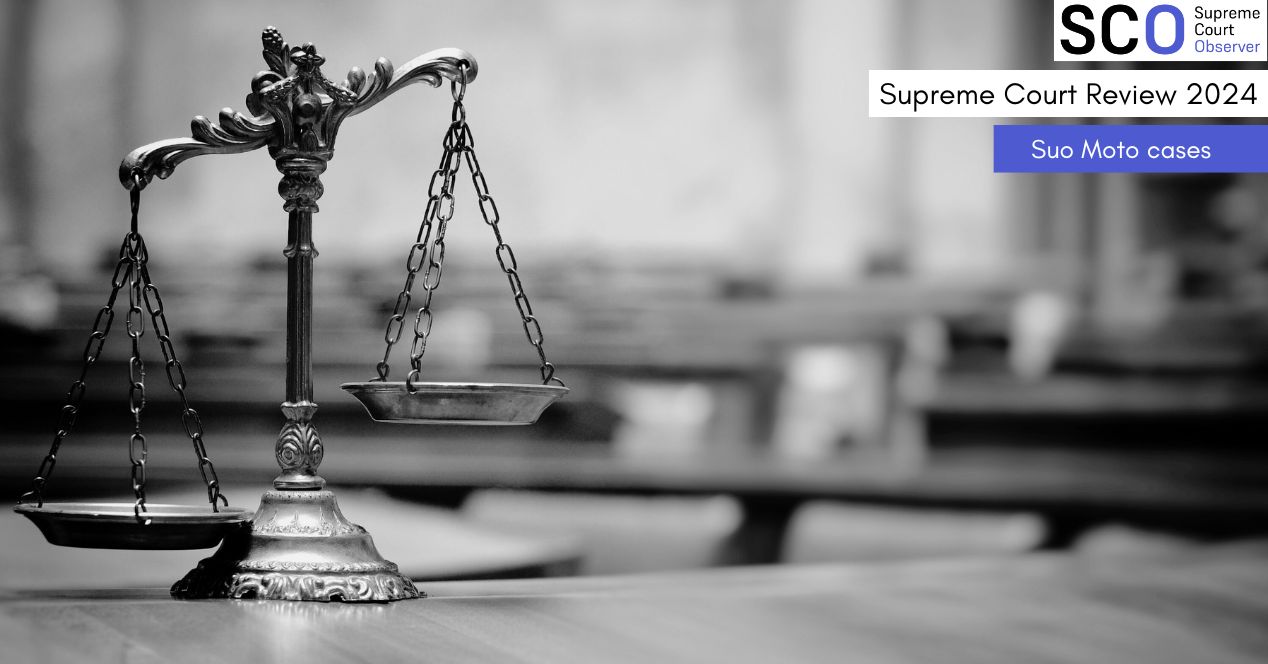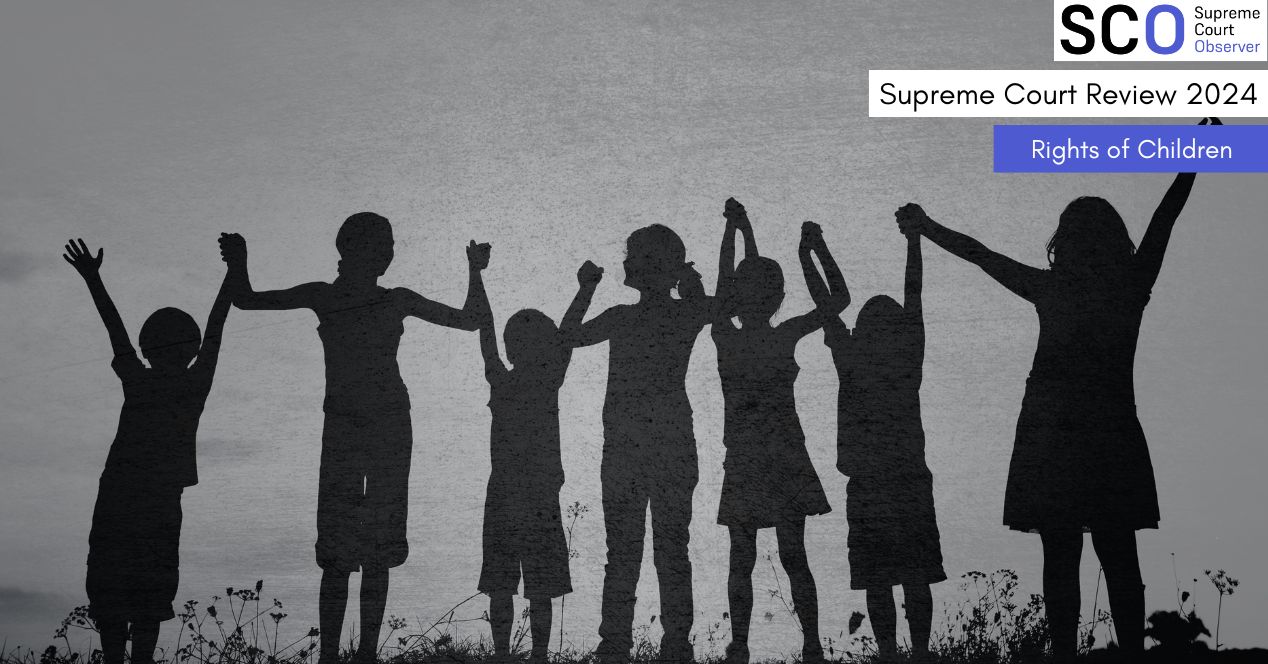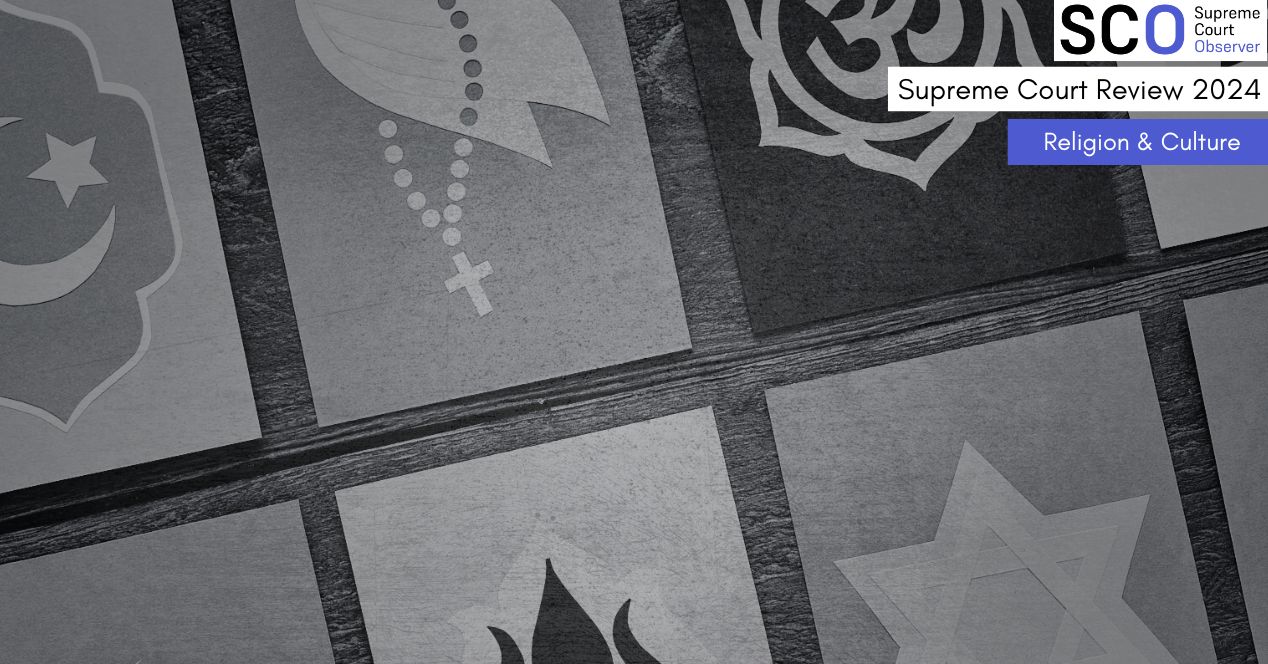Analysis
Supreme Court Review 2024: Recognising ‘substantive equality’ to address systemic barriers
As India grapples with its myriad social challenges, the Court’s rulings pushed for substantive equality rather than ‘sameness’
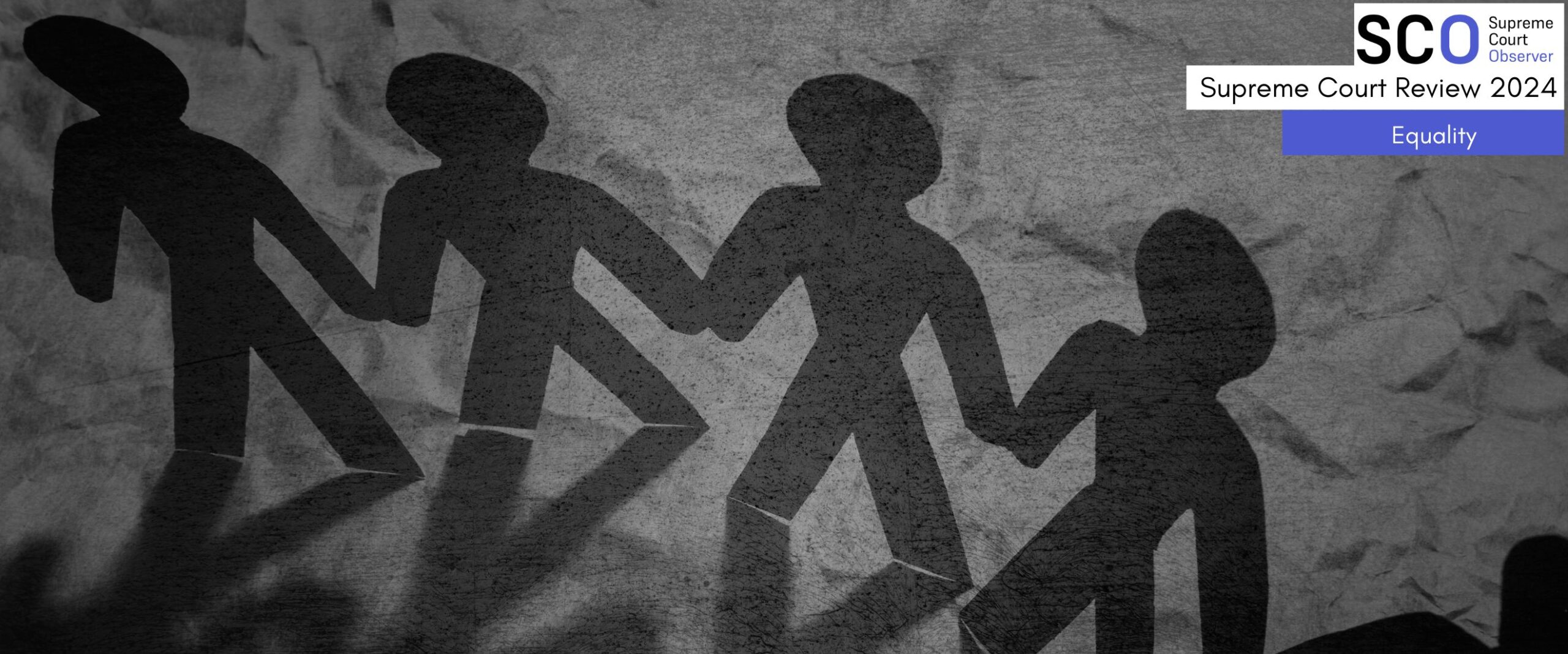
In ’Substantive equality revisited’ (2016), Sandra Fredman highlighted that Supreme Courts around the world had embraced the principle of substantive equality in interpreting the right to equality. She wrote that “substantive equality need not be about achieving purely egalitarian outcomes; it should at least in part aim to reduce the gap between the more disadvantaged and the less disadvantaged”. In recent times, the Supreme Court of India appears to have embraced this holistic interpretation.
In 2024, especially, the Court pushed for substantive equality in several judgements. In a significant verdict on affirmative action, it batted in favour of sub-classifications within the Scheduled Caste and Scheduled Tribe (SC/ST) categories. In another, it called for a revision of prison manuals in various states to curb caste-based segregation in jails.
This push for substantive equality was also visible in judgements that called for the upliftment of persons with disabilities in the country. Notably, the Court also released a Handbook in 2024 to curb the use of ableist language and ensure equality of treatment. The Handbook emphasises that “equality law ought to recognise disability as a relevant characteristic and facilitate a regime of change and accommodation to existing norms.”
In this article, we revisit the Court’s 2024 judgements, which pushed for the recognition of citizens’ equality beyond the contours of ‘sameness.’
Reservation within reservation
On 1 August 2024, a seven-judge Constitution Bench in State of Punjab v Davinder Singh upheld states’ power to create sub-classifications within the Scheduled Castes and Scheduled Tribe (SC/ST) categories in a 6:1 majority. The bench overturned that judgement in E.V. Chinnaiah v State of Andhra Pradesh (2004), which had barred sub-classifications as “tinkering with” the Presidential List of 1950 under Article 341.
The majority, led by former Chief Justice D.Y. Chandrachud reasoned that the Constitution promoted “a more substantive reading of the equality provision… [ensuring] that the benefits trickle down to those who need it the most.” Since there was disparity within various SC/ST groups, sub-classification was permissible to ensure equality, not sameness. However, the bench clarified that any law creating sub-classification had to be based on empirical data and was subject to judicial review. Sub-classification, they said, was “one of the means to achieve substantive equality“ and the underlying idea is that “two persons who are not similarly situated cannot be treated alike.”
Justice Bela Trivedi dissented. She held that sub-classifications would violate the principle of equality enshrined under Article 14 of the Constitution. The “removal of inequalities or remedy to remove inequalities cannot be permitted at the cost of violation of the specific provision of the Constitution,” she said.
After the judgement, states like Haryana and Telangana announced their intention to create sub-classifications for backward SC/ST groups within their states after the Court’s judgement.
Positive secularism and equality
On 5 November, the Court partly upheld the constitutionality of the Uttar Pradesh Board of Madarsa Education Act, 2004. The Act provides a legal framework to regulate education, integrating both religious and secular learning, in the state’s Madarsas. The Court held that institutions like Madarsas have the right to provide religious education and manage their own administration while preserving their minority character.
The Court overruled the decision of the Allahabad High Court, which had struck down the Act entirely as a violation of the principle of “secularism”. The Act, the Court reasoned, “furthers substantive equality for the minority community”, as it “imposes a responsibility on the Madarsas to attain certain standards of education laid down by the Madarsa Board.”
Analysing the Act through the lens of substantive equality, the Court stated the principle is “directed at eliminating individual, institutional and systemic discrimination” against disadvantaged groups to enable their social, economic, political, and cultural participation in society.”
The Court reiterated that India’s Constitution adopted positive secularism which allows the State to treat minority institutions at par with secular ones. In other words, it “allows the State to treat some persons differently to treat all persons equally.”
Equality cannot be illegal
In Tinku v State of Haryana (2024), the court limited the contours of equality to illegality. The petitioner had sought a compassionate job appointment years after the death of his father, a Haryana police constable. According to the state’s 1999 policy, applications seeking compassionate recruitment must be filed within three years of the employee’s death. The petitioner argued that he was eligible for the job even though more than three years had lapsed because other delayed applications were granted.
The Court rejected the petition, ruling that prior illegal appointments did not create a lawful entitlement. The right to equality, the Court said, was “a concept clothed in positivity based on law” and can only be invoked to enforce claims with legal sanctity, not to justify unlawful benefits.
Fee-ing the system
In Gaurav Kumar v Union of India, (2024) a Division Bench examined the issue of unequal enrolment fees charged by different State Bar Councils (SBCs).
The petitioner, a law graduate, had challenged the exorbitant enrolment fees, ranging from ₹10,000 to ₹50,000, levied by various SBCs—far above the legislated cap of ₹600 for general candidates and ₹100 for SC/ST candidates prescribed by the Advocates Act, 1961. For aspiring lawyers from marginalised and economically weaker sections, these fees act as barriers.
The Court held that unequal fees were unconstitutional, and violated the right to equality under Article 14. The Court also held irregular enrolment fees as violative of the right to practice a profession of choice under Article 19(1)(g).
“Dignity is crucial to substantive equality”, the Court said, while reasoning that the enrolment fee structure disproportionately affects those with limited financial resources and was, therefore, “contrary to the principle of substantive equality.”
Freeing prisons from caste discrimination
In Sukanya Shantha v Union of India (2024), the top court struck down provisions in various State prison manuals that legitimised caste-based discrimination in prisons. The Court held that such practices subverted the principle of substantive equality enshrined in the Constitution and violated Articles 14, 15, 17, 21, and 23.
“Rules that discriminate among individual prisoners on the basis of their caste specifically or indirectly by referring to proxies of caste identity are violative of Article 14 on account of invalid classification and subversion of substantive equality,” the bench held.
In particular, the Court criticised practices like separating the “scavenger class,” assigning menial jobs to certain castes and deeming Denotified Tribes as habitual offenders. The judges held that such practices perpetuated the ideas rooted in untouchability and systemic discrimination, hindering rehabilitation and violating the dignity of prisoners.
Calling for a systemic overhaul, the bench urged institutions to identify patterns of exclusion and eradicate discriminatory practices. “The bounds of caste are made of steel—sometimes invisible but almost always inextricable,” the judgement poignantly cited author Nusrat F Jafri.
Bridging the disability gap
2024 also witnessed significant judgements that furthered disability rights in India.
In Om Rathod v The Director General of Health Services (2024), the Court was dealing with a civil appeal by a medical aspirant with a locomotor disability. He had challenged the AIIMS Nagpur Disability Board’s decision which held him to be ineligible for an MBBS admission, despite his high NEET UG score and a valid disability certificate. The Court held that the petitioner’s plea was valid since “non-availability of reasonable accommodation amounts to discrimination and violates substantive equality of persons with disabilities.” The judgement emphasised that reasonable accommodation is not merely an ancillary measure, but a “gateway right” to avail all other “fundamental, human and legal rights for persons with disabilities.”
In Rajive Raturi v Union of India (2024), a three-judge bench led by former Chief Justice D.Y. Chandrachud held accessibility for persons with disabilities (PWDs) a fundamental and human right essential to substantive equality. The Court observed that Articles 14, 19, and 21 guarantee “not only formal equality but also substantive equality, which requires the state to take positive steps to ensure that individuals can enjoy their rights fully, irrespective of disabilities.” Mandating annual audits to assess progress, the judgement outlined measures for systemic inclusion—including disability-friendly public infrastructure, sensitisation of public sector employees and accessible education and transport.
In Nipun Malhotra v Sony Pictures Films India Private Limited (2024), the Court issued guidelines for the sensitive portrayal of persons with disabilities in visual and electronic media. The judgement highlighted the difference between ‘disability humour’ and ‘disabling humour’ which often gets overlooked by the media creators. Justice Chandrachud emphasised the need to balance free speech with the dignity of persons with disabilities, stressing substantive equality under the RPwD Act. While refraining from censoring the film, the Court’s guidelines urged filmmakers to avoid stereotypes and involve persons with disabilities in the creative process. “Language that individualises the impairment and overlooks the disabling social barriers should be avoided or adequately flagged as contrary to the social model (of disability),” the Court said.

